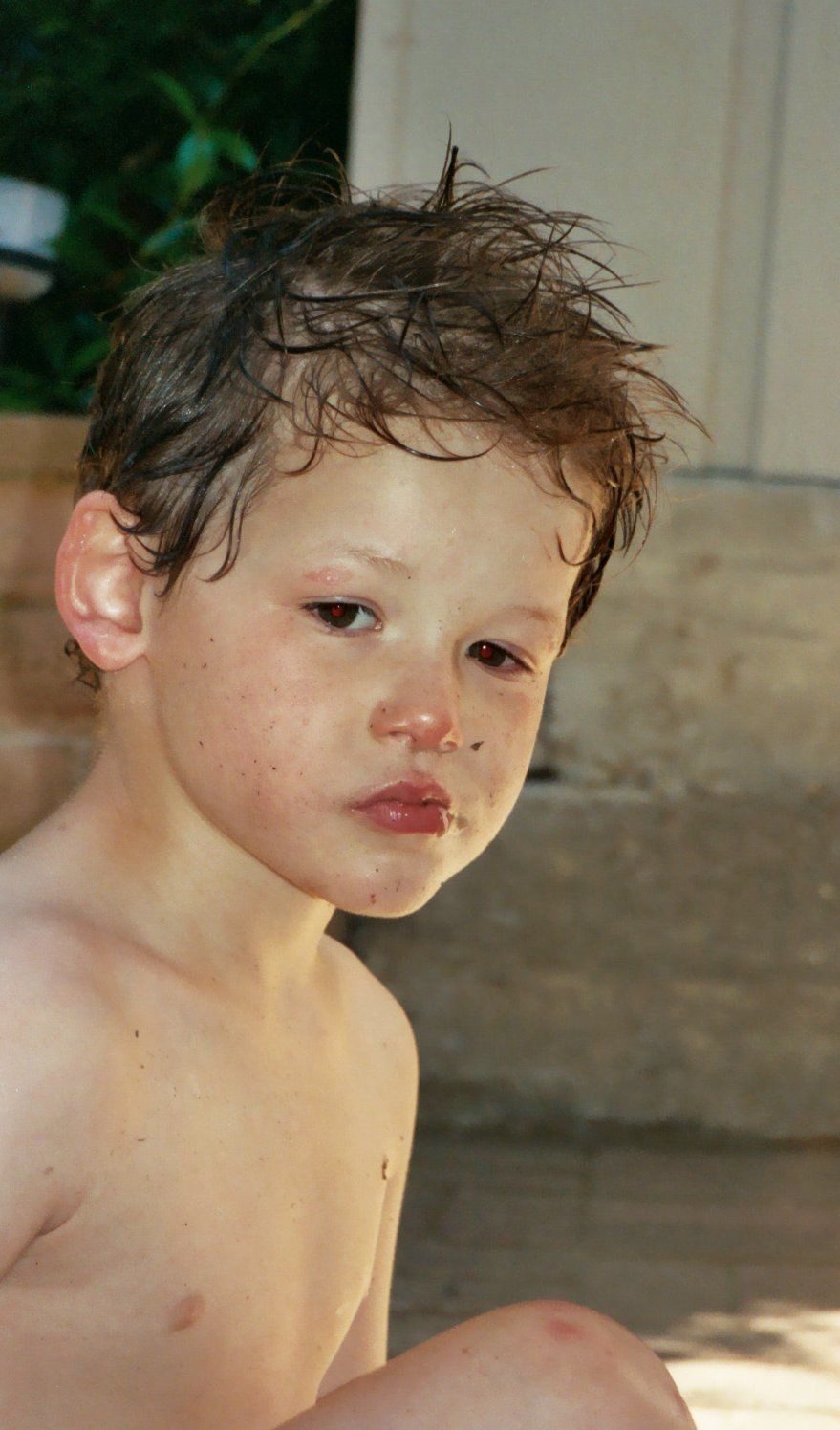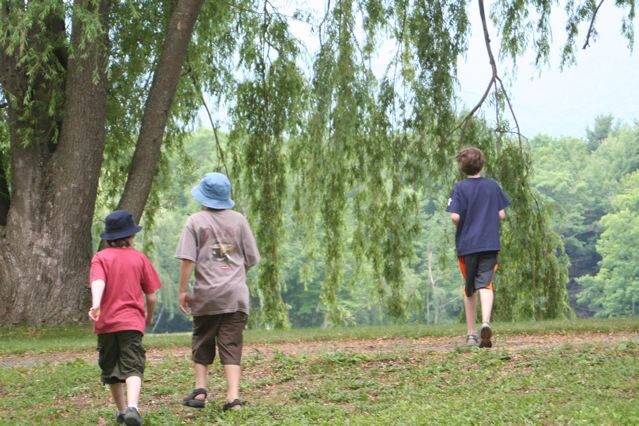JoyMama elvis-sightings.blogspot.com My six-year old daughter Joy loves Baby Einstein videos, and has found them mesmerizing since infancy. I’ve heard them so often that I practically know them by heart, including the promotional material at the end of the VHS tapes. In one of the self-advertising sequences, Julie Aigner-Clark, creator of Baby Einstein, is heard to exclaim, “As moms, we’re all looking for help … and if a mom tells you, ‘Try this, it works,’ you automatically try it if you’re a mom!” She wasn’t talking about alternative therapies for autism. But as the mother of a child on the autism spectrum, I hear the echoes. One place I heard such reverberations was in a Time magazine article on Jenny McCarthy and autism1, in the March 8, 2010 issue. Actress and former Playboy Playmate Jenny McCarthy, whose son was diagnosed with autism in 2005, has become the celebrity-mom face of…
Search Results for: diagnosis
Corina Lynn Becker nostereotypeshere.blogspot.com In my time browsing the online community, I often get asked about my story, what it’s like to be a late-diagnosed autistic and what I want people to know. This is rather odd, because I’m not in the habit of showing off my scars, but there are some things that I think that I can talk about. I want to be very honest with you. I am an adult living on social assistance, in a shared accommodation run by a non-profit housing organization. Despite being highly educated, I find it difficult to find and maintain a job on my own, and I’m not even sure that I ever will. I struggle to survive with few to no supports, mostly my family and the little that some organizations have been able to provide. It is, at times, very and extremely hard. There is a lot to remember,…
Jennifer Byde Myers www.jennyalice.com Can you remember developing photos, when you had no idea what you were going to get? We would turn in those little canisters and hope for something wonderful to come back in the envelope. We used to spend a lot of money trying to get a good picture of our son. Capturing Jack on film required expert photography skills combined with the fastest shutter speed and endless rolls of film. It took money and patience and perseverance, and faith, and will, and cooperation and an ability to be spry that most people lose about the age of nine — and we failed, continuously. We don’t really have those “Kodak moments” in our family, and it’s not for lack of trying. We have been prolific in our clicking so as to produce at least some decent shots over the years, if only by the grace of statistics…
Michael V. Drejer twitter.com/maialideth When I was diagnosed with Asperger’s syndrome in 2003 at the age of 25, I had already pretty much given up hope of ever finding and getting a job that was right for me. All I had to show for my job skills was a high school diploma with a lousy grade average, and a few exams which I barely passed when I tried studying to become a school teacher and when I tried getting a bachelor degree in English at the university, neither of which I finished. Apparently it is difficult for people with Asperger’s syndrome to get a job or keeping a job, which was exactly what I had experienced as well. Fortunately, it does not have to be like that. In fact, hiring “aspies” for certain niche jobs can be of a great mutual advantage both for the aspie and for the company…
Kristen Spina http://kristenspina.wordpress.com/ I hang back, following but not too closely, watching my son and his two best friends through the viewfinder, my face hidden behind the awkwardness of a zoom lens. As I watch the boys cross the red wood bridge, I snap half a dozen photos. And then again, as they settle in on the dock, taking turns casting, tossing pieces of bread to a giant turtle bobbing on the lake’s surface. There is little to show here for my son’s differences. He is simply one of the guys, enjoying a bit of freedom and fun on a weekend in the Catskills. I scan the lake and the mountains beyond, the grey clouds sitting low in the sky, and think about how remarkable the scene really is — how its very ordinariness is something to celebrate. I take a few more pictures, then leave the boys to their…
Mike Stanton actionforautism.co.uk When I attended the National Autism Society’s first International Autism Conference in London in 2005, I heard Professor David Amaral tell the story of a young man with Asperger Syndrome who visited the MIND Institute at UC Davis. The young man was asked what he would do if they could develop a pill to cure autism. He thought for a while before replying that he would take half the pill. I think this illustrates a real difference within the autism community. There are many who pathologize autism as a disorder that afflicts an otherwise healthy individual. If you hold this idea you naturally look to understand the causes of autism in order to find that “autism pill.” The idea of neurodiversity was developed by autistic people in opposition to the pathologizing model. According to them autistic people are not disordered. They have a different sort of order.…
Jean Winegardner www.stimeyland.com I feel that when I got my son Jack’s autism diagnosis, it was as if I had been given directions to a trail head that started us down a path. The path was different than the one I’d planned on and this path was rockier than the one I left behind, but still, it was a path. Walking along this autism path was better than milling around aimlessly in a meadow, unable to find a trail head of any sort. When I think of Jack’s autism and where it takes us, I can actually see this path in my mind. It is made up of dirt and rocks and it winds through and up a mountain pass. I’m walking it with Jack, and my other children walk on either side of me. Sometimes the rocks in our path cause only Jack to stumble, but sometimes they are…
Jordan S. Sadler, MS, CCC-SLP http://www.communicationtherapy.net/ Parents of children with autism spectrum disorder (ASD) sometimes ask, “What is my child’s prognosis?” and that is understandable. As a parent, it is likely that I’d be asking it myself. However, it may be as difficult for therapists to answer as it is for parents to ask. For one thing, what do parents mean by “prognosis”? Does it simply mean, “What will the outcome be for my child after all this therapy? What will his future look like?” Or is it a way of asking, “How close to typical do you think my child will become? Will he eventually blend in with his peers more?” I always ask families to bear in mind just how broad the range of “typical” really is; it’s a moving target. Is your typical the same as my typical? Is “quirky” as okay with you as it is…
Shannon Des Roches Rosa www.squidalicious.com www.canisitwithyou.org www.blogher.com/blog/shannon-des-roches-rosa A child’s autism diagnosis can mess with parents’ heads. Media portrayals of children with autism and their adult spectrum-mates dwell almost exclusively on negatives and challenges, so when a parent is told that their child is autistic, they are usually incredibly upset. It doesn’t help when doctors lack the bedside manner to soften the emotional impact of their diagnoses, or have no information about contemporary autism therapies and resources. When that happens, parents are both freaked out and flapping in the wind. Their child’s doctor was supposed to give them answers and guidance, but instead upended their lives, then shoved them out the door. No one can explain why they have a child with autism, and they know nothing about autism. They are emotionally reeling, angry with the medical establishment, and hungry for any information that will help their child. Most parents start…


